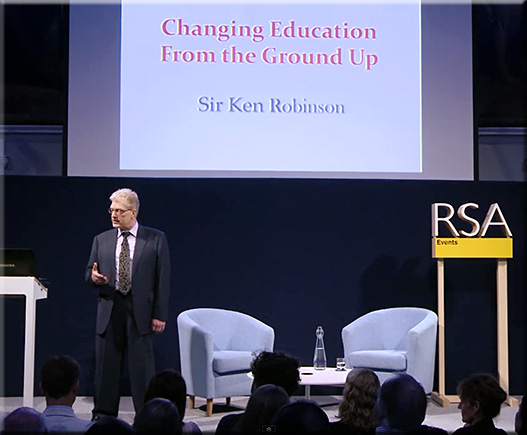10 Teach me to do your will,
for you are my God;
may your good Spirit
lead me on level ground.
“Faithful are the wounds of a friend.” King James Version
or
“Wounds from a friend can be trusted…” New International Version
May these words of my mouth and this meditation of my heart be pleasing in your sight, LORD, my Rock and my Redeemer.
For where your treasure is, there your heart will be also.
A new digital ecology is evolving, and humans are being left behind — from io9.com by George Dvorsky

Excerpt (emphasis DSC):
Incomprehensible computer behaviors (<– Can we use the word behavior here? It seems an odd word to describe computer-related actions…) have evolved out of high-frequency stock trading, and humans aren’t sure why. Eventually, it could start affecting high-tech warfare, too. We spoke with a researcher at University of Miami who thinks humans will be outpaced by a new “machine ecology.”
For all intents and purposes, this genesis of this new world began in 2006 with the introduction of legislation which made high frequency stock trading a viable option. This form of rapid-fire trading involves algorithms, or bots, that can make decisions on the order of milliseconds (ms). By contrast, it takes a human at least one full second to both recognize and react to potential danger. Consequently, humans are progressively being left out of the trading loop.
…
“What we see with the new ultrafast computer algorithms is predatory trading,” he says. “In this case, the predator acts before the prey even knows it’s there.”
Johnson describes this new ecology as one consisting of mobs of ultrafast bots that frequently overwhelm the system. When events last less than a second, the financial world transitions to a new one inhabited by packs of aggressively trading algorithms.
.
From DSC:
I’m getting concerned about the power of emerging technologies and who is using these technologies — and how they are using them. It took humans to program these algorithms. It still takes humans to oversee these issues/trends (at least at this point in time!). Therefore, values — and hearts — come into play here — with very real effects. Quoting from the article:
“There is real money being gained and lost here — even a few thousand dollars every millisecond, which is a tiny amount on the market, is a million dollars per second,” he told us. “This money could be pension fund money, and so on. So somebody needs to understand what is going on, and if it is ‘fair’.”
Who’s involved here? Who’s making sure things are “fair?” Also…what are MBA programs teaching along these lines? Computer Science teachers/professors? What values are we instilling in the people who will be programming the algorithms that overlook such processes? That are/will be creating this new “machine ecology?”
“For I know the plans I have for you,” declares the Lord, “plans to prosper you and not to harm you, plans to give you hope and a future.
Then you will call on me and come and pray to me, and I will listen to you.
You will seek me and find me when you seek me with all your heart.”
Fear of man will prove to be a snare,
but whoever trusts in the Lord is kept safe.
May the grace of the Lord Jesus Christ, and the love of God, and the fellowship of the Holy Spirit be with you all.
Meta-analysis: Technology-led education drastically curbs recidivism — from campustechnology.com by David Nagel
The largest study to date measuring the effectiveness of prison education programs found that technology-driven programs are at least as effective as teacher-led programs. Both types of programs have led to drastic cuts in repeat offenses and significantly higher employment rates for prisoners upon release.
Excerpt:
Education programs in prison have a massive impact on recidivism. Based on a new meta-analysis, “inmates who participated in correctional education programs had 43 percent lower odds of returning to prison than inmates who did not.” The study also set out to find whether technology-led instruction among inmates could cut down on recidivism as well as teacher-led instruction. The results were positive.
“I feel soooo much joy when I dance.” Music and life at the level of the soul. Talk about gifts…wow!
“I want to change the world…one smile at a time.”
.
.
.
.
.
From DSC:
If you watch this ~8 min clip, I guarantee that you will smile — and, if it hits you like it hit me, you will even cry. But you will be touched. It’s music and life at the level of the soul.
I’d like to thank Joe and Kate Byerwalter for this excellent and fun find.
Rarely do I want to go out an immediately purchase a tune that I’ve just heard.
But that’s what happened when I heard the tune that Tommy Franklin danced to:
Shooting Stars from The Bag Raiders
Are not five sparrows sold for two pennies? Yet not one of them is forgotten by God. Indeed, the very hairs of your head are all numbered. Don’t be afraid; you are worth more than many sparrows.
From DSC:
What strikes me about this piece of scripture is how amazingly detailed-oriented — and loving/caring — the LORD is. Incredible. Mind-blowing!
By the way, I’d take this message any day over the front-page articles that I see each morning when I pick up some coffee. The articles are typically meant to catch your eye and attention — but do so almost always with an agenda of violence, war, humankind’s fighting and atrocities towards one another. Normally, they are accompanied by images of violence, loss, catastrophe, accidents, war, bloodshed, and fighting. Whereas that might sell newspapers, I hate the underlying message — the message they convey is life isn’t worth *&%~. Once again showing that the world’s ways are often 180 degrees opposite from our Heavenly Father.

Colossians 2:9-10 New International Version (NIV)
For in Christ all the fullness of the Deity lives in bodily form,
and in Christ you have been brought to fullness.
He is the head over every power and authority.
In the beginning was the Word; now the Word is on an app — from nytimes.com by Amy O’Leary
.

Listeners use a Bible app during a sermon at Fellowship Missionary Baptist Church in Chicago.
Excerpt (emphasis DSC):
EDMOND, Okla. — More than 500 years after Gutenberg, the Bible is having its i-moment.
For millions of readers around the world, a wildly successful free Bible app, YouVersion, is changing how, where and when they read the Bible.
Built by LifeChurch.tv, one of the nation’s largest and most technologically advanced evangelical churches, YouVersion is part of what the church calls its “digital missions.” They include a platform for online church services and prepackaged worship videos that the church distributes free. A digital tithing system and an interactive children’s Bible are in the works.
…
This month, the app reached 100 million downloads, placing it in the company of technology start-ups like Instagram and Dropbox.













